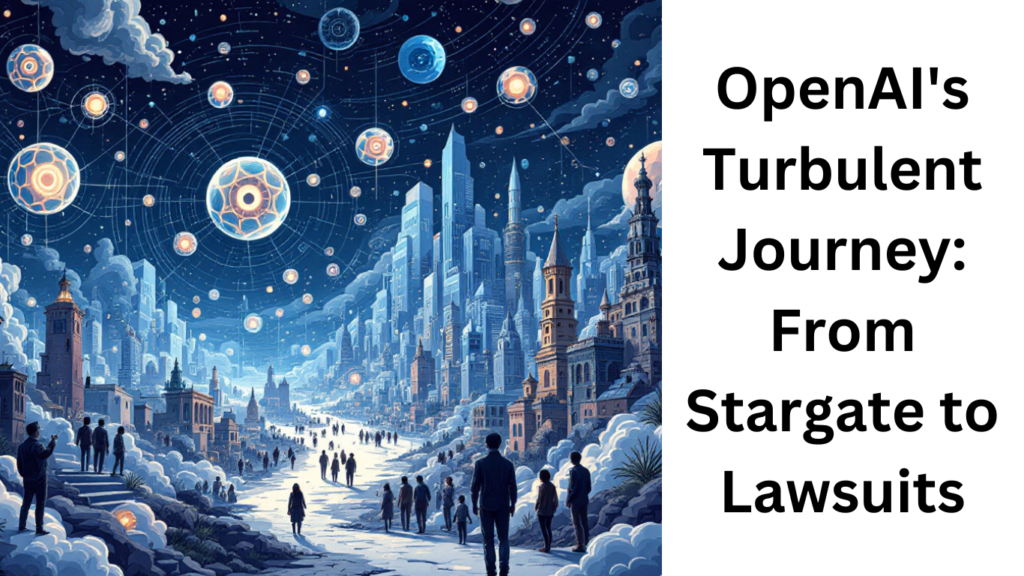OpenAI’s Turbulent Journey: From Stargate to Lawsuits

Introduction
OpenAI, a pioneer in the artificial intelligence (AI) landscape, has recently found itself in the midst of a whirlwind of controversies and challenges. From ambitious projects to legal battles and internal conflicts, the company’s journey has been anything but smooth. This blog delves into the recent developments surrounding OpenAI, including its $500 billion venture, the rise of Chinese AI model DeepSeek, copyright lawsuits, and internal warnings about the risks of AI.
OpenAI’s $500 Billion Venture: Stargate
OpenAI recently embarked on an ambitious project called Stargate, a $500 billion venture aimed at pushing the boundaries of AI. However, the company’s dominance was soon challenged by the emergence of a Chinese AI model called DeepSeek. This model, praised by OpenAI CEO Sam Altman as “impressive,” smashed OpenAI’s dominance and sparked a new wave of competition in the AI space.
The Rise of DeepSeek and OpenAI’s Response
The rise of DeepSeek has been a significant plot twist in OpenAI’s journey. The Chinese AI model has been accused by OpenAI of copying its technology. OpenAI claims to have evidence that DeepSeek used its work to train its models, although this evidence is not yet public. This accusation has added fuel to the ongoing debate about AI ethics and intellectual property.
Copyright Lawsuits in India
OpenAI’s legal troubles extend beyond its competition with DeepSeek. The company is currently facing a copyright lawsuit in India, filed by news agency AI. The lawsuit accuses OpenAI of improperly using copyrighted content from news websites without permission. Several Indian media giants, including Network 18 and other digital publishers, have joined the case, seeking to hold OpenAI accountable for its actions.
OpenAI has responded by attempting to block the lawsuit, with reports suggesting that Sam Altman is planning a visit to India to address the issue. This legal battle highlights the complexities of AI development and the importance of respecting intellectual property rights.
Internal Warnings About AI Risks
Amidst its legal battles and competitive challenges, OpenAI is also facing internal warnings about the risks of AI. A former OpenAI safety researcher, Steven Adler, has gone public with his concerns about the company’s approach to artificial general intelligence (AGI). Adler warns that AI could be moving too fast, with potentially serious consequences if not properly managed.
This internal criticism adds another layer of complexity to OpenAI’s journey, raising questions about the company’s priorities and its commitment to ethical AI development.
OpenAI’s Struggle for Control
OpenAI’s recent challenges highlight the company’s struggle for control in the AI landscape. From fending off lawsuits to battling new competitors and addressing internal warnings, OpenAI is navigating a complex and ever-changing environment. The company’s ability to control the future of AI is being tested, and its actions in the coming months will be crucial in determining its long-term success.
Conclusion
OpenAI’s journey from Stargate to lawsuits and internal warnings is a testament to the complexities of the AI landscape. The company’s ambitious projects, competitive challenges, legal battles, and internal criticisms highlight the need for ethical AI development and respect for intellectual property rights. As OpenAI continues to navigate these challenges, its actions will shape the future of AI and its role in the global tech industry.